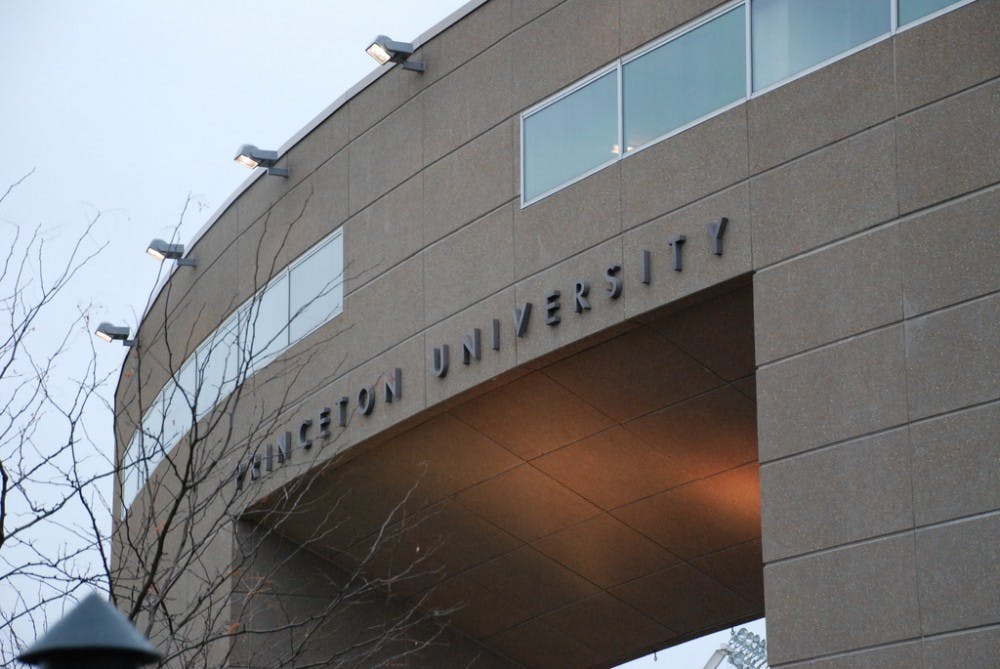On Tuesday, Oct. 29, the NCAA announced that its Board of Governors voted unanimously to grant college athletes the opportunity to receive compensation from the third parties for “use of their name, image, and likeness.”
Though lacking specific policies, the statement represents the first time in the NCAA’s history that it has indicated willingness to allow athletes to earn money off their status. The revised guidelines, slated for implementation in January 2021, would affect over 460,000 college athletes — including over 1,000 Princetonians.
The issue of monetary compensation has proven a polarizing debate among student-athletes at Princeton and around the country.
“I can really see both sides of the argument,” wrestler Patrick Brucki ’21 said. “You go to college to get your education, … [a]nd so it’s your end of the bargain to … live the lifestyle of a student, not of a professional. On the other hand the NCAA … has been profiting for a long time on the work of college athletes ...That can be frustrating too, I understand that.”
The approved shift will enable student-athletes to accept sponsored endorsements and profit from any number of miscellaneous marketing opportunities. The NCAA already permits universities to provide students with stipends to cover miscellaneous costs associated with athletics, such as transportation and nutrition. The new regulations aim to further open the doors, permitting college athletes to independently earn money from outside organizations.
“For example, [presently], you can’t model as a student athlete,” women’s basketball captain and two-time Ivy League Player of the Year Bella Alarie ’20 said. “I don’t know why there should be a block on a student who’s an athlete. You work so hard to achieve in your sport and if you … can kinda profit off of that in different ways, I don’t see why that would be a negative thing.”
Alarie views sponsorships as a worthy extension of the toil that athletes are required to invest in their respective sports.
“We’re so busy at school and have so many hours of basketball,” she said. “If you could spend a few making money off of doing a photo shoot or having a sponsorship … and being able to post them on your Instagram and make money on the side … I think that’s just kind of like an easy side hustle … If the option was there, I’d totally think about it.”

Women’s water polo players Maisie McPherson ’23 and CiCi Stewart ’23 disagree. “I feel very strongly against athletes being paid,” McPherson said. “You’re a student-athlete, not an athlete-student. You have to put your academics first.”
“It defeats the purpose of playing college sports,” Stewart added. “You’re there to go to college and play for your university, you’re not there to use your college experience to promote yourself. It’s your education.”
McPherson and Stewart doubt the extent to which the change would materially impact athletes competing at smaller universities, such as Princeton — especially for those who play “unpopular” sports.
“In my opinion, the payment doesn’t benefit that many players,” Stewart said. “It benefits basically the 1 percent of athletes, and those 1 percent are probably going to be making money [later] ... [by] going professional.”

“How much more money is men’s football going to make than men’s soccer?” McPherson asked. “How much are women’s sports going to be paid at all?”
Conversely, Brucki, a nationally ranked wrestler, believes that Princeton athletes may see material benefits. “We’ve got programs and people in our programs who are ranked … We get a lot of attention for our name,” he said. “Their name and their image is worth a lot.”
Alarie agrees. “There are some really high-profile athletes on this campus [who] could achieve sponsorship deals, and I think that companies would want them representing their products,” she said. “That’s definitely a possibility in the future.”
All four athletes voiced concerns about how access to financial gain will be organized within the Ivy League, a conference with unique athletic principles.
“I’m not really sure how it would change the Ivy League just because they’ve gone by a different set of standards for so long,” Alarie said. “There’s so many examples of ways we do things differently from every other league.”
The organization has a long history of bucking athletic norms, taking unconventional, academic-oriented stances on matters from summer athletic training to game scheduling. Unlike the majority of Division I schools, the Ivies do not offer athletic scholarships to students.
Scholarships or not, Brucki perceives the strong motivation that drives his teammates and opponents.
“College athletes are some of the most hungry and driven people in the world,” Brucki said. “They haven’t made that contract yet, they haven’t signed with a professional team yet, they’re still trying to prove themselves. Amateurism … is one of the beauties of college athletics.”
McPherson shares Brucki’s appraisal of the beauty in collegiate sports.
“When you’re playing for your university, you’re playing because you love your university,” she said. “That’s why college sports are so much better … than professional sports.”
“College sports are different because you’re playing for a reason bigger than money,” Stewart said.
“You’re playing because you love the sport. College athletes play for something bigger than themselves — they play for the entire team.”








